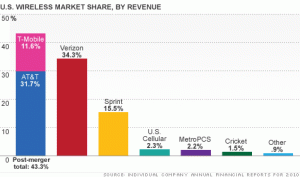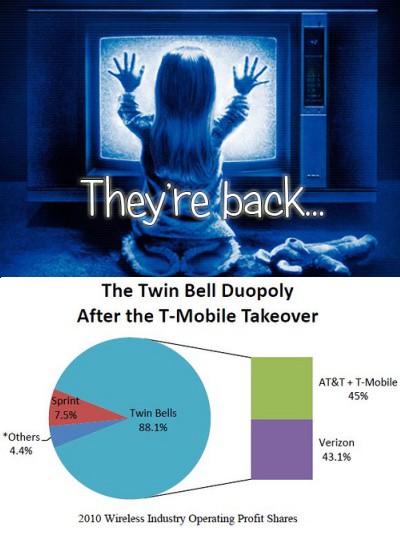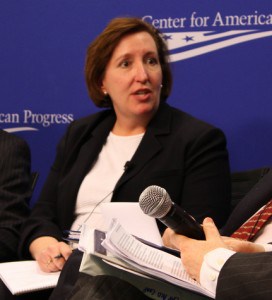By the time Hurricane Irene reached upstate New York and New England, it was a tropical storm some say was over-hyped from the outset, but don’t tell that to utility companies facing weeks of service restorations that will leave some of their customers offline until October.
The worst damage to infrastructure was done in this region, with utility poles swept away in flood waters right along with the homes they used to serve. Telephone and cable companies in several parts of the region cannot even begin to restore service until higher-priority electric service is brought back. Besides, you can’t use a broadband connection if your power has been out for a week plus.
Those addicted to their online connection are making due in parking lots and other Wi-Fi hotspots where service prevailed over Irene. Wireless connectivity from cell phone companies is also getting a workout, assuming customers are aware of usage caps and limitations which could make September’s bill much higher than expected.
Stop the Cap! has learned some DSL service restoration appointments in upstate New York, Massachusetts, Vermont, and New Hampshire are now extending into October, although companies suggest outside work may resolve problems. Customers with the worst luck face a lengthy wait for the replacement of utility poles, new utility lines to be strung across them, and replacement of individual lines connected from the pole to individual homes.
Some FairPoint Communications customers are finding Irene did a real number on their DSL service even if power outages were limited.
In southwestern New Hampshire, Robert Mitchell was presented with a unique error page on his computer after the lights came back on:
“…we are improving the security of your broadband connection. As such, you have been redirected to the FairPoint Communications broadband service page to install a security update.”
That was a fine idea, except its implementation left customers like Mitchell with the most secure broadband connection around, resistant to all malware and viruses — namely, by not having any connection at all.
My annoyance only increased when I realized that FairPoint may have provided a link to download the security update software, but they were not going to make the process of accessing that software easy.
“Your Web browser (Firefox) and Operating System (Mac) are not compatible with the DSL Security improvement process…please re-open this page on a Windows XP, Vista or Windows 7 PC using Internet Explorer,” the message continued.
Bully for me, I have two Macs in the office. Time to call technical support? Nope, sorry. Both of my phone lines use Vonage, a VoIP service that relies on a working DSL modem for dial tone. Cell service at the house was sketchy at best — if I could even get through to technical support during a hurricane.
 With the help of an old Windows XP machine, Mitchell managed to finally get back online. Later, he learned the power spikes and brownouts that preceded the blackout in his neighborhood had caused his DSL modem to resort to its original default settings. When FairPoint customers first connect a DSL modem, the company prompts them to perform the aforementioned “security update.” Only FairPoint stopped offering that update more than eight months earlier. Now, according to Mitchell, it’s just the default start page for newly activated DSL modems.
With the help of an old Windows XP machine, Mitchell managed to finally get back online. Later, he learned the power spikes and brownouts that preceded the blackout in his neighborhood had caused his DSL modem to resort to its original default settings. When FairPoint customers first connect a DSL modem, the company prompts them to perform the aforementioned “security update.” Only FairPoint stopped offering that update more than eight months earlier. Now, according to Mitchell, it’s just the default start page for newly activated DSL modems.
Customers further east in downstate New York, Massachusetts, Maine, Long Island, Connecticut, and New Jersey are finding getting service restoration highly dependent on which provider they use.
Time Warner Cable customers numbering about 350,000 found their service out Wednesday after leftover flooding and debris tore up fiber cables serving Maine, New Hampshire and Vermont. Service was restored that evening.
Cablevision customers in Connecticut are still experiencing new outages caused by flooding, and with power company workers contending with more damage in that state than further south in New York, cable crews can’t restore service until the lights are back on.
![]() Cablevision customers on Long Island are still being told not to bother calling the cable company to report outages. Those that do are often given a date of Sept. 15 for full service restoration, although it could be sooner if damage in individual neighborhoods is less severe. A Cablevision spokesman said, “Cablevision is experiencing widespread service interruptions, primarily related to the loss of power. Cablevision crews are in the field and we will be working around the clock to make necessary repairs, in close coordination with local utilities. Generally, as electricity is returned to an area, customers will be able to access Cablevision service.”
Cablevision customers on Long Island are still being told not to bother calling the cable company to report outages. Those that do are often given a date of Sept. 15 for full service restoration, although it could be sooner if damage in individual neighborhoods is less severe. A Cablevision spokesman said, “Cablevision is experiencing widespread service interruptions, primarily related to the loss of power. Cablevision crews are in the field and we will be working around the clock to make necessary repairs, in close coordination with local utilities. Generally, as electricity is returned to an area, customers will be able to access Cablevision service.”
 Verizon customers in downstate New York and New Jersey faced lengthy hold times to report service outages, and are given a range of dates from later this week until mid-September for full service restoration. Some pockets of very badly damaged infrastructure may take even longer to access and repair. Verizon’s largest union workforce, under the auspices of Communications Workers of America District 1 are accusing Verizon management of slowing repairs with denials of overtime work requests, in part to punish workers for their recent strike action. John Bonomo, a Verizon spokesperson, denies that accusation, but added the company is not treating the thousands of customers still without service as an emergency, noting landline service “is not as vital as it had been in past years.”
Verizon customers in downstate New York and New Jersey faced lengthy hold times to report service outages, and are given a range of dates from later this week until mid-September for full service restoration. Some pockets of very badly damaged infrastructure may take even longer to access and repair. Verizon’s largest union workforce, under the auspices of Communications Workers of America District 1 are accusing Verizon management of slowing repairs with denials of overtime work requests, in part to punish workers for their recent strike action. John Bonomo, a Verizon spokesperson, denies that accusation, but added the company is not treating the thousands of customers still without service as an emergency, noting landline service “is not as vital as it had been in past years.”
Comcast customers, mostly in Pennsylvania, Vermont and Massachusetts, are turning to smartphones to cope through extended service outages, according to the Boston Globe:
Comcast Corp. customer Soraya Stevens turned to her iPhone when her cable blew out, logging on to Twitter from her Bedford home for the latest power outage updates. “I would not have any communication or insight without my smartphone,’’ said Stevens, a software engineer.
Some customers who lost cable service lost their TV, Internet, and landline phone, which are often bundled and sold together. Many turned to their smartphones, operating on batteries and the signal from cellphone towers, or friends and family who still had cable service.
AT&T, which serves landline customers in Connecticut, experienced more outages a day or two after Irene departed as battery backup equipment installed at landline central offices finally failed. Those equipped with diesel generators are still up and running, but many AT&T customers sold a package of broadband and phone service may actually be receiving telephone service over a less-robust Voice Over IP network, supported with battery backup equipment that shuts down after 24 hours, when the batteries are exhausted. This has left customers with standard copper wire phone service still up and running, but customers on Voice Over IP completely disconnected.
Bill Henderson, president of Communications Workers of America Local 1298, told the Hartford Courant those landlines aren’t considered landlines by the Department of Utility Control, and aren’t regulated for reliability, as the old system is.
“Technology has risen. Some of the things we’ve given up in that system is reliability,” he said. “This is what I’ve been screaming about to the DPUC. It’s a telephone! We need to regulate this service.”
Customers are also complaining loudly about AT&T’s poor wireless performance during Irene, with many tower outages and service disruptions that are still ongoing.
Remember, when services are restored, be sure and contact your provider and request a full service credit. You will not receive one unless you ask.


 Subscribe
Subscribe











